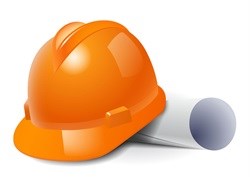The strike at platinum mines during the past months can have a negative impact on relationships between workers and supervisors - and even between workers from different trade unions - as and when mineworkers return to work.
According to Roger Dixon, chairman of SRK Consulting, this could put pressure on safety performance if there is not a high level of discipline, as workers will be looking to regain bonuses after months without an income. He said that the industry had still not managed to de-link the incentives for higher production levels from the daily demands of health and safety in the workplace.
He said that underground drilling and blasting activities are still usually undertaken manually in deep-level gold and platinum mines, despite extensive research and development efforts up to the 1990s. After that, the re-engineering of the mining houses into smaller, leaner corporate entities put a stop to most of the collaboratively funded research into mining technology in SA.
"The improvement in safety performance since the law was changed in 1996 does indicate progress, but we are unlikely to see these improvements continue at their current rate if we cannot effectively mechanise operations in areas of the mine where most rockbursts and falls of ground occur," said Dixon.
Codes of practice
He also pointed to the need for more effective implementation of the codes of practice that mines were meant to apply in their various areas of operation. While the Mine Health and Safety Act put various important principles in place - like the right to refuse to perform dangerous work - it was the codes that often became the mechanism for implementing better safety practice.
"This is fine up to a point, but there is still the need for the Department of Mineral Resources to audit these codes of practice at each mine site, and to ensure they are being applied," he said. "The department does not always have the capacity to tackle technical issues with mining company experts; the pay-scales offered by government, for instance, are simply not sufficient to attract the expertise required."
The Section 54 powers granted to departmental officials - referring to the ability to close an operation after an accident - are also sometimes used counter-productively. By reducing the working days in month, these stoppages disadvantage those workers on bonus incentives and can even heighten the risk of workers taking safety short-cuts to make up for lost time.
He said the mines needed a longer term sector strategy to improve health and safety performance that would address productivity, mechanisation and profitability in a way that would not place any of these factors in conflict with each other.







































